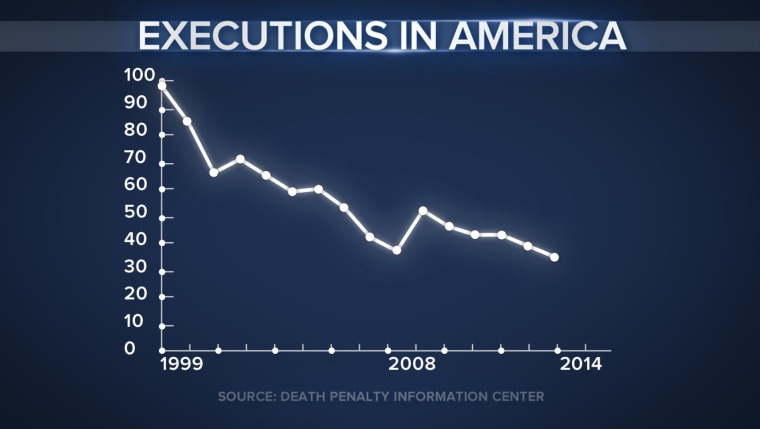This week the state of Nebraska outlawed the death penalty and in doing so it followed a trend that has been working its way through the legal system over the past decade. Through moratoriums and outright bans the death penalty is in retreat.
And on this issue, legal and legislative action is running ahead of public opinion.
Since 2007, seven states have abolished the death penalty, according to the Death Penalty Information Center – New Jersey, New York, New Mexico, Illinois, Connecticut, Maryland and, now, Nebraska. Another 19 states have placed moratoriums or temporary holds on the death penalty awaiting court rulings or dealing with the shortage of the drugs used in lethal injections.
That’s 26 states that have seen some reduction in use of death penalty in less than a decade. You can see the death penalty’s state of play in the United States on this map.
What’s been driving the legal changes around the capital punishment? That’s a more complicated question.
The discussion around capital punishment in the United States has changed as DNA evidence and high-profile exonerations have made headlines. Seventy death row inmates have been exonerated since the year 2000.
And along with those exonerations, the rate of executions has been slowing after peaking in 1999.

But public opinion is not leading the charge on the death penalty changes. It is actually something of a lagging indicator.
Polls show Americans still tend to favor capital punishment. About 63% support it in Gallup’s survey data. That’s down from the mid-90s, when support was up around 80%, but it’s still a solid majority. Numbers from the Pew Research Center shows the support figure at 55%.
In other words, the movement on capital punishment looks like an issue where courts, government officials and legislative bodies are leading, rather than following, the public.
Even bearing that view in mind, however, the movement in Nebraska this week was remarkable. Looking at the numbers, the Cornhusker State would seem a long shot to ban the death penalty – even more so because the state’s Republican legislature overrode a veto from a Republican to do it.
There are some groups that still strongly favor the death penalty and those groups are a big part of the Nebraska electorate.
According to Pew’s data 71% of Republicans and 63% of non-Hispanic white Americans still favor capital punishment for those convicted of murder. Nebraska gave Republican Mitt Romney 60% of its presidential vote in 2012 and its population is 81% non-Hispanic white. (Nationally, of course, Mr. Romney lost, garnering 47% of the popular vote, and, as a whole, the United States population is only 63% non-Hispanic white.)
Death penalty supporters in the state say the fight is not over. They want to try to restore the death penalty through a voter referendum. That effort will be one to watch in the weeks and months ahead.
It may help answer the big question out of this week’s Nebraska ban – and the way it goes against the numbers in the state: Was this week’s action an odd one-time outlier or a sign of larger movement in the anti-death penalty trend.